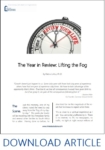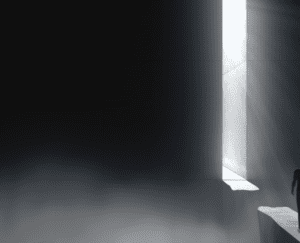“Growth doesn’t just happen to us. Some sixty-year-olds have had sixty years of experience; others have had one year of experience sixty times. We have to take advantage of the opportunity that is there. If we lose it, we lose all consequences it would have given birth to, but if we grasp it, we gain all the consequences following from it.”
~Stephen Miller, Co-Founder, Common Ground Center
The Scene. Just this morning, one of my clients noted the need to step away from the “fog of my day-to-day.” This particular leader will be travelling with his immediate family and several other families to South Africa for a safari. Having done so before, he described for me the magnitude of the re-set that he knows to expect while there.
“It’s as close to a spiritual experience as I get. You cannot be unaffected by it. There is no internet, no TV, no newspapers, no traffic, no light at night except millions of stars blanketing the sky overhead. All distraction that gets us wrapped around the axle, that can cause us to be miserable human beings in some cases, drops away. You feel really small amidst a profound appreciation for the planet and for civilization, and yet acutely aware of yourself, at the same time. I know, while there, I’ll think over the last year – the personal challenges, our work together, my team here. I’ll think about the good and the bad. And then look forward. With clarity.” (Note: this story is told with his permission.)
I’m already looking forward to hearing where his reflections take him, when he returns.
For the Rest of Us. Opportunities for deeper reflection typically require us to get out of our daily “fog.” When was the last time you feel you encountered a totally brand-new life lesson or personal insight? In my own twenty-plus years as a psychologist and leadership coach, my experience is that most of us bump along accumulating small- and medium-sized events that impact us for a little while before we return to a sort of homeostasis, interspersed with a few truly momentous “take stock moments.” Those moments of piercing the veil around our existing ways of being (which may be mere moments, or may last for hours, or even days) may enter in the form of an unexpected shift in one’s life path (such as a health scare, a loss of a job or a relationship) or as a planned change like bringing a first child home from the hospital.
In whatever form they may come, these “take stock” interludes allow us to break through to the possibility of seeing a fundamental dilemma or truth about ourselves and our lives – if we’re paying attention.
We can wait for life to present us with those times of liminality, of seismic and perhaps painful shifts. They will come. Or we can pursue at least a simulacrum of one through committed inquiry.
A Committed Inquiry. The last several years, I have published a year-end reflection along with a tool to assist with that inquiry. This year, I am offering a guided reflection that includes a mindfulness activity to help you get into the right mind and heart space for the work, followed by a several-question inquiry that was inspired by the Stephen Miller quote at the beginning of this blog. The exercise culminates in an assessment of whether you are circling a familiar issue or lesson that you’ve set intentions around in the past, then stopped short of creating the desired change (perhaps more than once). If that pattern is true of you, I’ve also suggested a way to break through it, based on Kegan and Lahey’s concept of competing commitments.
The exercise unfolds like this (note: a downloadable version you can use to record your responses can be found here on the Liminal Solutions Resources page, under Tools > Year End Review):
Preparation
- Find a quiet space within your day, within your week, to sit with the following questions.
- Prepare yourself for the inquiry by settling into your seat comfortably and tuning into your breathing. Breathe a little more deeply, a little longer, than you might normally.
- Shift your focus to your heart center, as if you were able to draw your breath into your heart center, drop it down into your belly and then release it back out through your heart center. Do this for 10 breaths or so.
- Next, still breathing slowly and deeply, invite a feeling of ease into your heart center with your breath. Allow it to settle into your body with your breath. And then slowly breathe that easeful feeling back out.
- Repeat this process several times.
Reflections
- Read the opening quote again (or for the first time). What does it evoke for you (thoughts, feelings, associations, etc.)?
- As you reflect over the most recent, meaningful period of your adult life (which may be one year, ten years, or more), where do you sense you fall against that depiction of learning one lesson repeatedly, or different lessons over time?
- Now, thinking just about this year that is coming to a close, what events or experiences stand out the most strongly to you as either meaningful and/or deserving of further reflection?
Pause here to repeat the heart-centered breathing sequence from the introduction:
- Looking back at the events and experiences you captured in the last reflection space, what does your deepest sense of self, of inner wisdom, have to tell you about the meaning or learning that is available to you through those experiences from the past year? If it helps, return to your heart-centered breathing for a few rounds and ask yourself questions as you breathe in, and then quietly sit & notice what emerges in your heart space. For example:
- “What am I supposed to learn through having struggled with several client accounts this past year?”
- “What deeper purpose in my life path did changing bosses serve for me?”
- “What meaning can I derive from the experience of having that huge health scare?”
- What do you glean about how those insights or learning might serve you in the coming year? As you sit quietly and consider the new year as a blank canvas, what future images do these insights project?
Breaking through Resistance
- Now, here’s the kicker: how “new” are the insights and/or actions you have listed in the last answer? Have you run into these issues or made these commitments before (per the beginning quote and questions)? If so, what has gotten in the way of you acting on these insights or actions in the past – i.e. what have you done instead and WHY (Kegan and Lahey, in their book Immunity to Change, call these “competing commitments”, our often unconscious fears or assumptions that block us from making change)? For example:
- I have set a new year’s intention for several years now to stop drinking caffeinated drinks past mid-day, so as to improve my sleep at night. But I haven’t been consistent in honoring that commitment. As I sit and ask myself why, what I may be committed to instead, I come up with: “I don’t fully believe that caffeine at night is causing my sleep problems.” And “I enjoy my caffeinated drink of choice. I don’t think I would enjoy anything else as much and I’m not willing to give up that source of pleasure.” So, my competing commitment to my nice-sounding action plan to quit drinking caffeine past mid-day: I am committed to my proven pleasure of having my drink of choice over my unproven, potential sleep gains.
- If you sense you’ve bumped into a familiar issue with a competing commitment attached, what experiments or revised action steps could you put in place for 2020 to test your competing commitments? Continuing with my example:
- Instead of committing AGAIN to stop drinking caffeinated drinks after mid-day, my new commitment is to conduct an experiment for one month. I will drink organic tea at night for one month and track my sleep to see if it improves. If it doesn’t, I will feel free to go back to drinking caffeinated drinks past mid-day. Just typing that, it feels much more manageable to me.
Signing Off for the Year. You may find one sitting with this inquiry will produce a noteworthy breakthrough or two, or it may take a couple of sessions. Additionally, doing it alone might be the best way to work through it, or, alternatively, you may share it with some close others, serving as each other’s listener and feedback provider. One former client mentioned to me that he tends to take these year-end reflections on his annual family car trip home, across several midwestern states. The miles flash by as he, his wife and their adult children read the questions aloud, reflect from their respective spots in the car, and give voice to what comes. What a wonderful ritual!
Whatever you do, do it with reverence for the often serpentine-like progress our paths to wisdom take throughout our lives. The kind of insight we’re after here rarely arrives as if it were a product of a mathematic equation. Rather, it’s more akin to stalking a wild animal on a safari of our own making…
Wishing you a 2020 of novel lessons!






